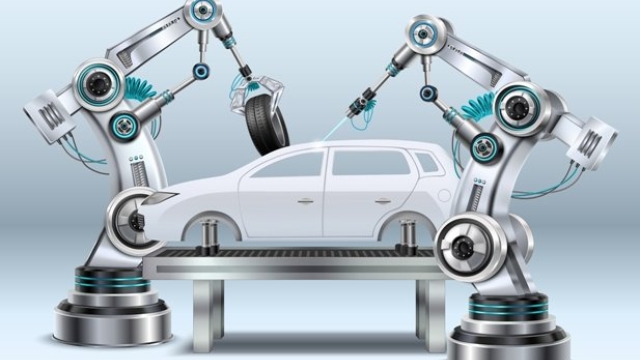
In today’s ever-evolving industrial landscape, heavy vehicle manufacturing and supply stand at the forefront of innovation and progress. With a growing demand for efficient, sustainable, and technologically advanced vehicles, the industry is faced with the challenge of meeting these requirements while staying competitive in a fast-paced global market. Heavy vehicle manufacturers and suppliers are continuously striving to enhance their processes, products, and services to align with the changing needs of customers and regulations alike.
This dynamic environment presents a myriad of opportunities for growth and advancement within the heavy vehicle manufacturing and supply chain. By adopting cutting-edge technologies, embracing sustainable practices, and fostering a culture of innovation, companies in this sector can position themselves as leaders in driving the future of transportation. The integration of digital solutions, automation, and data analytics is reshaping traditional manufacturing processes and paving the way for a more efficient, cost-effective, and environmentally friendly industry.
Challenges in the Industry
Quality semi trailers from trusted manufacturers
One of the main challenges in the heavy vehicle manufacturing and supply industry is the rapid technological advancements. Keeping up with the latest innovations such as autonomous driving technology and electric powertrains requires significant investment in research and development.
Another challenge is the shifting regulatory landscape. Governments around the world are imposing stricter emission standards and safety regulations for heavy vehicles. Manufacturers must ensure compliance while also managing the costs associated with meeting these new requirements.
Supply chain disruptions pose a significant challenge for heavy vehicle manufacturers. From sourcing raw materials to ensuring timely delivery of components, any disruption in the supply chain can have a domino effect on production schedules and overall operations.
Technological Advancements
One of the key drivers shaping the future of heavy vehicle manufacturing and supply is rapid technological advancements. Companies in the industry are investing heavily in research and development to incorporate cutting-edge technology into their production processes, leading to greater efficiency and quality in manufacturing.
Advancements in automation and robotics have revolutionized the heavy vehicle manufacturing sector, streamlining production lines and reducing human error. These technologies not only improve the speed of manufacturing but also enhance worker safety by handling hazardous tasks. Additionally, smart technologies such as sensors and IoT devices are being integrated into vehicles themselves, enabling real-time monitoring and predictive maintenance, further optimizing the overall supply chain.
Moreover, the rise of electric and hybrid heavy vehicles is a testament to the industry’s commitment to sustainable practices. With advancements in battery technology and charging infrastructure, manufacturers are poised to make significant strides in reducing carbon emissions and fuel consumption. These innovations not only align with global environmental regulations but also cater to the growing demand for eco-friendly transportation solutions.
Sustainability Initiatives
In line with the increased focus on environmental responsibility, heavy vehicle manufacturers are implementing various sustainability initiatives. These initiatives aim to reduce carbon emissions and minimize the ecological footprint of the manufacturing processes. By integrating renewable energy sources and optimizing production methods, manufacturers are taking steps towards a more sustainable future.
Furthermore, the adoption of innovative materials and technologies is playing a key role in enhancing the sustainability of heavy vehicle manufacturing. Lightweight materials such as aluminum and composite materials are being increasingly utilized to reduce the overall weight of vehicles, leading to improved fuel efficiency and reduced emissions. Additionally, advanced manufacturing processes like 3D printing are enabling more precise production with minimal material waste.
Collaboration across the supply chain is essential in driving sustainability initiatives within the heavy vehicle manufacturing sector. Suppliers, manufacturers, and stakeholders are working together to develop eco-friendly solutions, establish recycling programs, and implement efficient logistics practices. Through these collaborative efforts, the industry is creating a more sustainable ecosystem that benefits both businesses and the environment.
